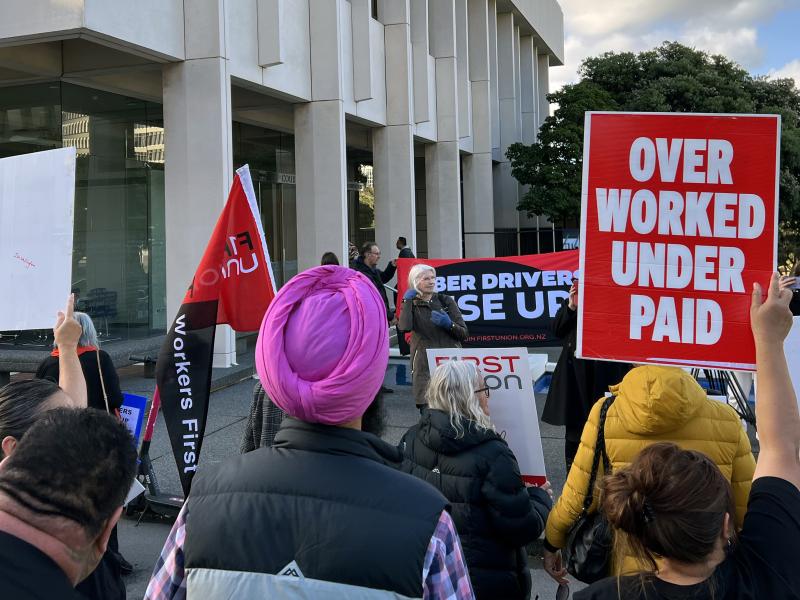The International Transport Workers’ Federation (ITF) is surprised to see the Commission's lifting of the yellow card because while illegal fishing has gotten more difficult, it has not been stopped entirely and violations of fishers’ rights and effective enforcement of labour abuse policies remain an issue. If global consumers are going to have confidence that their seafood is ethically sourced, there are still important industry reforms needed.
"While the Thai government has made some positive attempts at reform regarding regulation of illegal fishing, the implementation and effective enforcement of these regulations remains weak,” said Johnny Hansen, chair of the ITF Fisheries Section.
“Fishers still face many issues, including low wages, document retention, lack of effective health and safety provisions onboard, high identity document costs, debt bondage, and poor working conditions,” he said.
While labour reform is not an express area of the yellow card mandate, the ITF's Fishers’ Rights Network (FRN) is concerned that lifting the yellow card will send the wrong message to the international community about the fishing industry in Thailand, and give the illusion that violations of fishers’ rights are not still occurring.
Migrant fishers in Thailand, the majority of the workforce, regularly report to the FRN that illegal fishing is still occurring and that trafficked labour, debt bondage, and labour abuse are prevalent in the industry. When fishers attempt to stand up for their rights, or report instances of illegal, unreported and unregulated fishing or labour abuse, they are intimidated or fired and their complaints are dismissed or buried by corrupt owners or officials.
“Thai labour law still prohibits migrant workers from legally organising, effectively denying migrant fishers the opportunity to exercise their right to freedom of association and collective bargaining, and to speak out against violations,” said Hansen.
The government data that the European Commission is relying on is in contradiction to FRN’s data as well as recent reports by several key human rights and civil society organisations highlighting problems facing fishers in the industry.
“Forced labour and other rights abuses are widespread in Thailand’s fishing fleets despite government commitments to comprehensive reforms,” Human Rights Watch said in a report in January, 2018.
“We recognise the Thai government has taken a significant step in the right direction ratifying the International Labour Organization’s Convention on Work in Fishing (C188), but the ratification needs to be backed with effective implementation and enforcement for the industry to be truly cleaned up,” said Hansen.
“We look forward to the opportunity to continue to provide input on the legislation and frameworks to ensure that the rights of all fishers, irrespective of their nationality, are protected, and that all social partners are involved in appropriate tripartite consultations regarding the convention.
“The ITF’s Fishers’ Rights Network efforts will continue in the region until all fishers are covered by collective bargaining and supply chain agreements that protect and enhance their rights, regardless of the recent decision to lift the yellow card," concluded Hansen.
Contact: Luke Menzies, ITF | menzies_luke@itf.org.uk | +61 (0) 433 889 844
More information:
Human Rights Watch report: Thailand: Forced Labor, Trafficking Persist in Fishing Fleets
CSO Coalition’s report: Falling through the Net: A Survey of Basic Labour Rights among Migrants Working in Thailand’s Fishing Sector
Notes for editors:
About the ITF
The International Transport Workers' Federation is a democratic global union federation of 670 transport workers trade unions representing over 20 million workers in 140 countries. The ITF works to improve the lives of transport workers globally, encouraging and organising international solidarity among its network of affiliates. The ITF represents the interests of transport workers' unions in bodies that take decisions affecting jobs, employment conditions or safety in the transport industry.
About the FRN
Fishers’ Rights Network is the only independent, democratic and representative union of fishers in Thailand, organising and campaigning to improve the wages, working conditions and labour rights of all fishers in the Thai fishing industry. FRN has global union, NGO and industry backing with widespread endorsement from the from global union federations, national union centres across the globe including the AFL-CIO in the United States, TUC in the United Kingdom and ACTU in Australia, maritime unions from around the world, domestic unions in Thailand, NGOs and Thailand’s biggest seafood processing company Thai Union.



